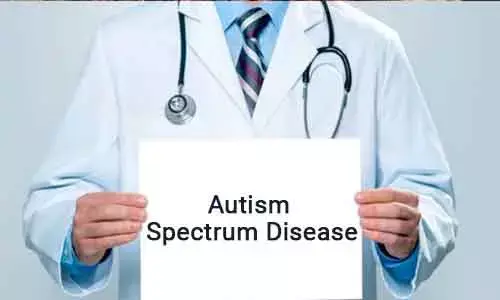- Home
- Medical news & Guidelines
- Anesthesiology
- Cardiology and CTVS
- Critical Care
- Dentistry
- Dermatology
- Diabetes and Endocrinology
- ENT
- Gastroenterology
- Medicine
- Nephrology
- Neurology
- Obstretics-Gynaecology
- Oncology
- Ophthalmology
- Orthopaedics
- Pediatrics-Neonatology
- Psychiatry
- Pulmonology
- Radiology
- Surgery
- Urology
- Laboratory Medicine
- Diet
- Nursing
- Paramedical
- Physiotherapy
- Health news
- Fact Check
- Bone Health Fact Check
- Brain Health Fact Check
- Cancer Related Fact Check
- Child Care Fact Check
- Dental and oral health fact check
- Diabetes and metabolic health fact check
- Diet and Nutrition Fact Check
- Eye and ENT Care Fact Check
- Fitness fact check
- Gut health fact check
- Heart health fact check
- Kidney health fact check
- Medical education fact check
- Men's health fact check
- Respiratory fact check
- Skin and hair care fact check
- Vaccine and Immunization fact check
- Women's health fact check
- AYUSH
- State News
- Andaman and Nicobar Islands
- Andhra Pradesh
- Arunachal Pradesh
- Assam
- Bihar
- Chandigarh
- Chattisgarh
- Dadra and Nagar Haveli
- Daman and Diu
- Delhi
- Goa
- Gujarat
- Haryana
- Himachal Pradesh
- Jammu & Kashmir
- Jharkhand
- Karnataka
- Kerala
- Ladakh
- Lakshadweep
- Madhya Pradesh
- Maharashtra
- Manipur
- Meghalaya
- Mizoram
- Nagaland
- Odisha
- Puducherry
- Punjab
- Rajasthan
- Sikkim
- Tamil Nadu
- Telangana
- Tripura
- Uttar Pradesh
- Uttrakhand
- West Bengal
- Medical Education
- Industry
Hearing test may detect autism in newborns

For years, researchers have known through numerous studies that hearing and other sensory systems of adults and children who have autism differ from children or adults without autism.
Now, University of Miami and Harvard Medical School researchers who explored responses to the standard hearing test administered to millions of newborns around the world, are closing in on a way to detect early indicators of autism--perhaps as early as at birth.
Published in the journal Autism Research, the findings could inform additional research and pave the way for evaluations that can better identify newborns with elevated autism risk by using standard hearing tests. The researchers note that such tests are already regularly and widely used to screen newborns for hearing loss. The tests work by measuring auditory brainstem response (ABR), which gauges how well a baby's inner ear and brain respond to sound.
"We're not at the point just yet where we're telling clinicians to use ABR testing as a determinant for autism in babies," said study co-author Elizabeth Simpson, an associate professor in the College of Arts and Sciences' Department of Psychology, whose research focuses on understanding infant social cognitive development. "But we are saying that this study presents a promising direction in how ABR testing can be used as a method for precise autism detection at birth."
"The importance for diagnosing autism early during infant and child development, when interventions can have the most impact, cannot be overstated," said the study's lead author Oren Miron, a research associate in the Department of Biomedical Informatics at Harvard Medical School. "Any additional tool that could clarify diagnostic clues would be invaluable in that regard."
For the study, researchers analyzed large datasets of Florida infants who were screened for hearing impairments with ABR tests. Usually conducted in hospital maternity wards, the tests make computer recordings of the auditory nerve activity of babies who are exposed to sounds transmitted by electrodes placed on their scalps. The test sound is very mild and can be performed while the infants sleep.
The research team analyzed nearly 140,000 auditory recordings from babies born in Florida and matched the data with records from the Florida Department of Education indicating children with developmental disabilities. Ultimately, they found that newborns who were later diagnosed with autism had slower brain responses to sounds during their ABR tests.
"Within the dataset we used from the Department of Education records of children who had autism, we saw how many we could match up from the ABR test screenings," Simpson said. "We located 321 children who had ABR test screenings taken when they were newborns and who were later diagnosed with autism by preschool age."
With additional investigation, researchers hope to add additional layers to the ABR screenings so that doctors can use them not only to better understand a newborn's hearing and risk for autism, but potentially other developmental problems--like speech, language impairment, and Sudden Infant Death Syndrome--that could arise later.
"We know autism spectrum disorder is connected to how children process sound, so even if the child's hearing is normal, it can still be processed differently," Simpson added. "With better understanding of how ABR testing can be used to identify at-risk babies, we can flag children who might be at risk.
https://onlinelibrary.wiley.com/doi/10.1002/aur.2422
Hina Zahid Joined Medical Dialogue in 2017 with a passion to work as a Reporter. She coordinates with various national and international journals and association and covers all the stories related to Medical guidelines, Medical Journals, rare medical surgeries as well as all the updates in the medical field. Email: editorial@medicaldialogues.in. Contact no. 011-43720751
Dr Kamal Kant Kohli-MBBS, DTCD- a chest specialist with more than 30 years of practice and a flair for writing clinical articles, Dr Kamal Kant Kohli joined Medical Dialogues as a Chief Editor of Medical News. Besides writing articles, as an editor, he proofreads and verifies all the medical content published on Medical Dialogues including those coming from journals, studies,medical conferences,guidelines etc. Email: drkohli@medicaldialogues.in. Contact no. 011-43720751


